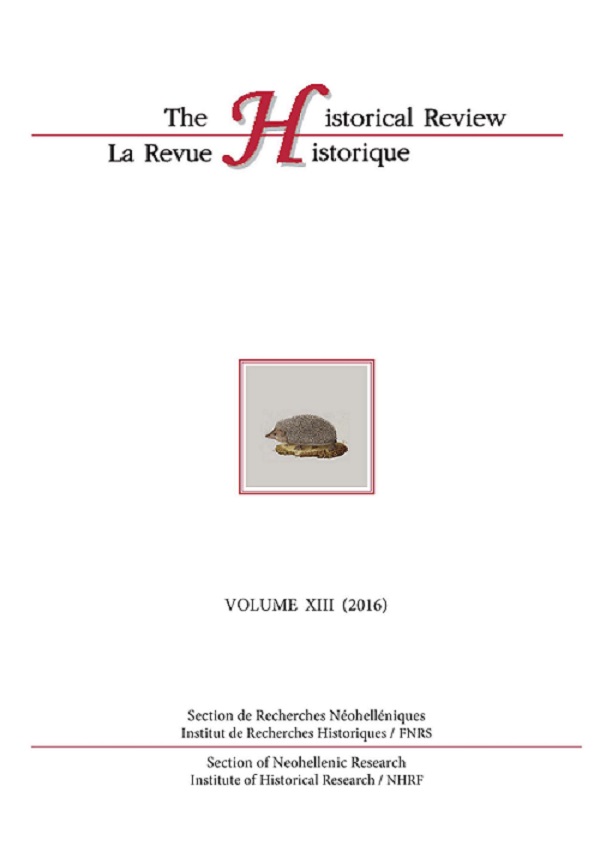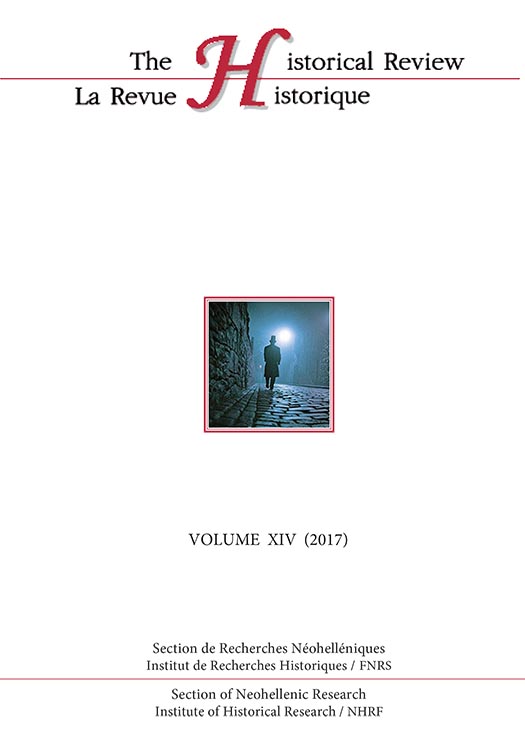Darwinism and the Survival of Religion
Abstract
It is a great honour and privilege to give the Constantinos Th. Dimaras
Lecture for 2016. I am grateful to the National Hellenic Research Foundation
for the opportunity to do so and to Dr Efthymios Nicolaidis for kindly issuing
the invitation.
In our age of the internet, there are few topics that excite such strong
opinions in the blogosphere as the relations between science and religion.
Deeply embedded in the consciousness, both scholarly and popular, of Western
Europe is the belief that science and religion have continuously been, and must
be, in conflict. This belief has been described as “the idea that wouldn’t die”,
despite excellent historical research drawing attention to its shortcomings.2
It is certainly not the only view. Those, including scientists themselves, who
represent different religious traditions, have often argued that, when “science”
and “religion” are properly understood, there can be a deeper relationship of
harmony, or at least compatibility, between them. When, during the 1960s, I
studied the history of science at Cambridge University, I realised that these
two master narratives of conflict and harmony are too general to capture
the complexity of historical controversy and debate.3 One of my aims in this
lecture is to illustrate this complexity by examining religious responses to
Charles Darwin’s theory of evolution.
Article Details
- How to Cite
-
Brooke, J. H. (2019). Darwinism and the Survival of Religion. The Historical Review/La Revue Historique, 13, 271–291. https://doi.org/10.12681/hr.16311
- Issue
- Vol. 13 (2016)
- Section
- Articles

This work is licensed under a Creative Commons Attribution-NonCommercial-ShareAlike 4.0 International License.
The copyright for articles in this journal is retained by the author(s), with first publication rights granted to the journal. By virtue of their appearance in this open access journal, articles are free to use with proper attribution in educational and other non-commercial sectors. The Historical Review/La Revue Historique retains the right to publish papers that appear in the journal in collective volumes published by the Institute for Neohellenic Research/National Hellenic Research Foundation.
Sample acknowledgement: Reprinted with permission from the author. Original publication in the The Historical Review/La Revue Historique www.historicalreview.org
This work is licensed under a Creative Commons Attribution-NonCommercial-ShareAlike 4.0 Greece License. To view a copy of this license, visit http://creativecommons.org/licenses/by-nc-sa/4.0/ or send a letter to Creative Commons, 543 Howard Street, 5th Floor, San Francisco, California, 94105, USA




